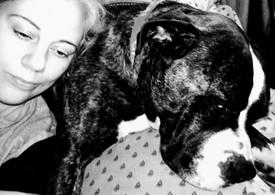Burning chest while running
Options

Natalialeonovich26
Posts: 1 Member
Everytime I try to go running I have to stop after a minute because my chest feels like it's on fire and I can't physically get enough air into my lungs. The last time I went running I ended up in a coughing fit. I know it's not a stitch but I don't know what it is exactly or how to counteract it.
Any suggestions on what to do?
Any suggestions on what to do?
1
Replies
-
Running, even at a slow pace, is a relatively high intensity activity. You may not have the fitness level yet to run at all; or you may be running too fast for your current fitness level.
It’s also possible that you are having an asthma-like response to the activity-if so its likely related to the first paragraph.
The best solution to run of the above is to run slower and/or for shorter intervals. That means something like 30 seconds of running followed by 1-4 min of walking.
6 -
First, checking in with your doctor is always a good idea before starting new exercise.
Second, follow a training plan. A lot of newbies just go out and run a mile or two, but many don’t have the fitness base to do this safely. C25K is a good plan if you can already walk 30 minutes comfortably. If you can’t, then build your walking endurance first.
Third, slow down. Way, way down. It’s okay if your running pace is barely faster than your walking pace. You will get faster as you train. For a typical workout, you should run slow enough that you could still hold a conversation.3 -
-
Just chiming in to say I concur with the previous advice. See your doctor! Don't mess around with chest pain.
Then, if you get cleared, slow down. If you can't sing while you run you're going too fast.
Good luck.0 -
Agree....see your doctor to ensure that everything is okay.
Once you find out that it is, slow way, way down. You can run at the same pace as you walk. Speed will happen in time. The singing/speak a sentence test is good to keep you running at a reasonable pace.0 -
I'm pretty new to running. The first thing I learned about running is: running is hard.
You need to walk before you can run. How fast can you walk a mile? I always recommend to people that they should be able to walk a ~15 minute mile and be able to walk a 5K in well under an hour before working on running. Also, cross train on elliptical or similar to get started.1 -
Make Dr Appt and have EKG done for starters2
-
nighthawk584 wrote: »Make Dr Appt and have EKG done for starters
No reason not to do this to be sure, but also, don't stress too much about it (e.g., be careful but stay hopeful).
I started running a few years ago (in my mid 50s) and I was getting some "chest tightness" the day after a run. I reported it to my doc and he ordered a "stress test," but didn't seem all that concerned. The test was normal.
The test was also an underwhelming experience. I had been running on a treadmill at >6MPH for up to an hour a few times a week, but all they wanted to see was my EKG after about 10 minutes of walking briskly on slight incline, bringing my HR to about 140 (whereas, my max is closer to 180). I asked them to push it further and the response was basically: "get out of here, you're fine." There was also a sign on the wall that said: "The doctor cannot tell you why your chest hurts," or something to that effect. This is not a test that is very satisfying for aspiring athletes, it is a test for people with serious heart conditions!0 -
nighthawk584 wrote: »Make Dr Appt and have EKG done for starters
Resting ECG would be almost completely useless as a diagnostic tool in this case.0 -
Jthanmyfitnesspal wrote: »nighthawk584 wrote: »Make Dr Appt and have EKG done for starters
No reason not to do this to be sure, but also, don't stress too much about it (e.g., be careful but stay hopeful).
I started running a few years ago (in my mid 50s) and I was getting some "chest tightness" the day after a run. I reported it to my doc and he ordered a "stress test," but didn't seem all that concerned. The test was normal.
The test was also an underwhelming experience. I had been running on a treadmill at >6MPH for up to an hour a few times a week, but all they wanted to see was my EKG after about 10 minutes of walking briskly on slight incline, bringing my HR to about 140 (whereas, my max is closer to 180). I asked them to push it further and the response was basically: "get out of here, you're fine." There was also a sign on the wall that said: "The doctor cannot tell you why your chest hurts," or something to that effect. This is not a test that is very satisfying for aspiring athletes, it is a test for people with serious heart conditions!
Unfortunately, when the medical world substituted untrained techs for trained professionals, the quality of graded exercise testing pretty much disappeared.
0 -
Do you have a fitness monitor that watches your heart rate? My guess is your cardio fitness is not up to it yet. Trust me I get it, I had exactly the burning/breathless feeling when I started HIIT workouts.
After about a month of HIIT I have noticed I need to take less breathing breaks between stations. I got to this stage by reminding myself it isn't a race and it is way more embarrassing to collapse than to need more breaks than the person next to me. Also when taking a break, I had to rest until my breathing was under my conscious control again.0 -
As suggested by others:
First see a doc, to make sure everything is okay.
If it is: Run slower.
An advice I got when I started running: If your neighbor starts laughing its slow enough.
Pace is, in the beginning, something that comes (almost) all by itself ... Stamina is what you have to work for.0 -
Natalialeonovich26 wrote: »Everytime I try to go running I have to stop after a minute because my chest feels like it's on fire and I can't physically get enough air into my lungs. The last time I went running I ended up in a coughing fit. I know it's not a stitch but I don't know what it is exactly or how to counteract it.
Any suggestions on what to do?
My gut reaction is that you're running too fast. It's a very common thing that new runners try to start out going full tilt rather than at a nice relaxed pace.
Depending on your level of fitness that could be a very slow pace which is fine. If need be you can even walk for a few minutes, run (slowly) for 30 secs to a minute and the resume walking (over time your running intervals should be longer and walking intervals shorter but everyone is different so take your time and allow your body to adapt, especially if you've been sedentary for a while).
The only time your lungs should be burning is if you decide to take up racing and are running a shorter distance like a mile (those are really hard!!! - I'd rather run a half-mararhon).
0 -
As a fairly new runner (with asthm)a I echo the recommendation to see the doctor. And also to follow a structured plan and slow down. I followed the c25k plan starting this Feb. The first few weeks I needed my inhaler before running to avoid the coughing you’ve described. Then over time I became stronger and I don’t need it often at all now. Definitely run slowly. Much slower than you’d think. Working on speed comes much later after you’ve built up endurance.1
This discussion has been closed.
Categories
- All Categories
- 1.4M Health, Wellness and Goals
- 396.5K Introduce Yourself
- 44.2K Getting Started
- 260.8K Health and Weight Loss
- 176.3K Food and Nutrition
- 47.6K Recipes
- 232.8K Fitness and Exercise
- 449 Sleep, Mindfulness and Overall Wellness
- 6.5K Goal: Maintaining Weight
- 8.6K Goal: Gaining Weight and Body Building
- 153.3K Motivation and Support
- 8.3K Challenges
- 1.3K Debate Club
- 96.5K Chit-Chat
- 2.6K Fun and Games
- 4.5K MyFitnessPal Information
- 16 News and Announcements
- 18 MyFitnessPal Academy
- 1.4K Feature Suggestions and Ideas
- 3K MyFitnessPal Tech Support Questions










